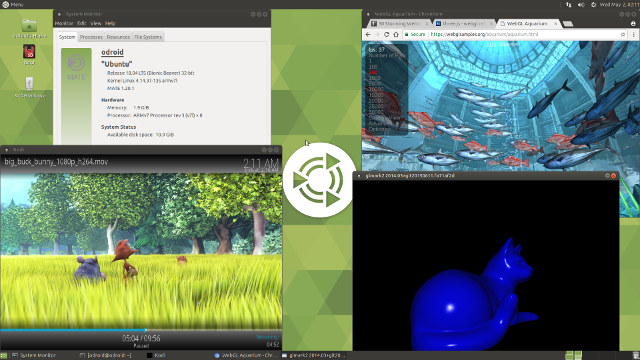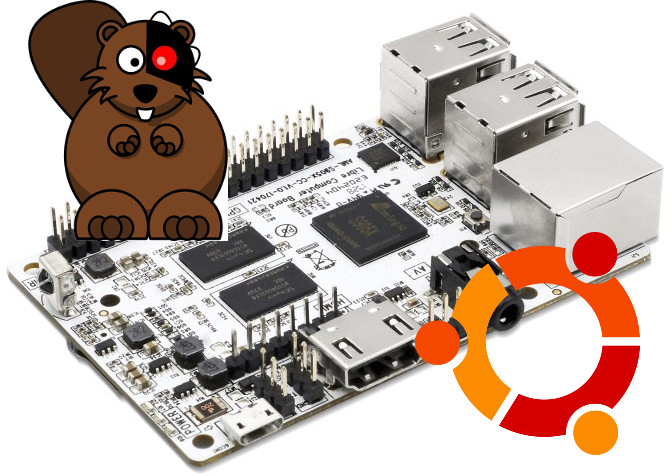Ubuntu 18.04 “Bionic Beaver” LTS operating system was released just last week, and at least two Arm board companies have independently released Ubuntu 18.04 images for their boards.
First, Hardkernel has released an Ubuntu 18.04 MATE image for their Exynos 5422 powered ODROID-XU4(Q), ODROID-XU3 (Lite), ODROID-HC1, and ODROID-MC1 boards/kits.

The ODROID Ubuntu image comes with the following key features:
- Linux 4.14.37 LTS
- GPU hardware acceleration via OpenGL ES 3.1 and OpenCL 1.2 drivers for Mali T628MP6 GPU
- FFMPEG/ffplay with hardware accelerated H.264 decoder
- X11 armsoc display driver with 2D acceleration
- GPU accelerated Chromium browser (WebGL contents and YouTube 720p plays well)
- Kodi 17.6 can play H.264 1080p/60fps BigBuckBunny sample video. (Note: no h.265, no 4K in Exynos-5422 processor)
- WiringPi and other GPIO/SPI/I2C/ADC/I2S tinkering libraries are available.
- KVM & Docker
- More stable and performant USB 3.0 and Gbit Ethernet drivers
The company sent me a kit based on ODROID-XU4Q board to review Ubuntu 18.04 on the platform, so I’ll write a more details review after the coming week-end. I’ve done some quick test already with the beta image, and it looked to be working well with GPU acceleration, and I could use same eMMC module on ODROID-XU4Q and my older ODROID-XU3 Lite board without any modifications. I did learn something however: Firefox 32-bit is now supported anymore (on Arm?).
If you are already running Ubuntu 16.04 on your board, you can upgrade with the usual command:
|
1 2 3 |
sudo apt update sudo apt dist-upgrade sudo reboot |
Alternatively, you can download the image, and flash it with Etcher.
If you own Amlogic based ODROID-C2 or ODROID-C1+, Ubuntu 18.04 is also coming, but you’ll need to wait a little longer, as the release is planned for June.
Hardkernel is not the only company to have released an Ubuntu 18.04 for their board, as Libre Computer announced the release of Ubuntu 18.04 “Preview Image 1” for their AML-S905X-CC “Le Potato” board using Wayland compositor.
Canonical is not using Wayland by default, but BayLibre did some work related to GBM (Graphic Buffer Management) that allows the use of Wayland on the board (and other S905 boards).
The image is still work in progress, so if you need stability keep using the Ubuntu 16.04.4 image for now, but if you want to experiment with Ubuntu + Wayland, go ahead. The very first boot is said to take around 5 minutes, but once it’s complete, you should able to select Ubuntu on Wayland, and try some 3D demo apps:
|
1 2 3 |
sudo apt-get install mesa-utils-extra glmark2-es2-wayland es2gears_wayland glmark2-es2-wayland |
Have fun!

Jean-Luc started CNX Software in 2010 as a part-time endeavor, before quitting his job as a software engineering manager, and starting to write daily news, and reviews full time later in 2011.
Support CNX Software! Donate via cryptocurrencies, become a Patron on Patreon, or purchase goods on Amazon or Aliexpress





